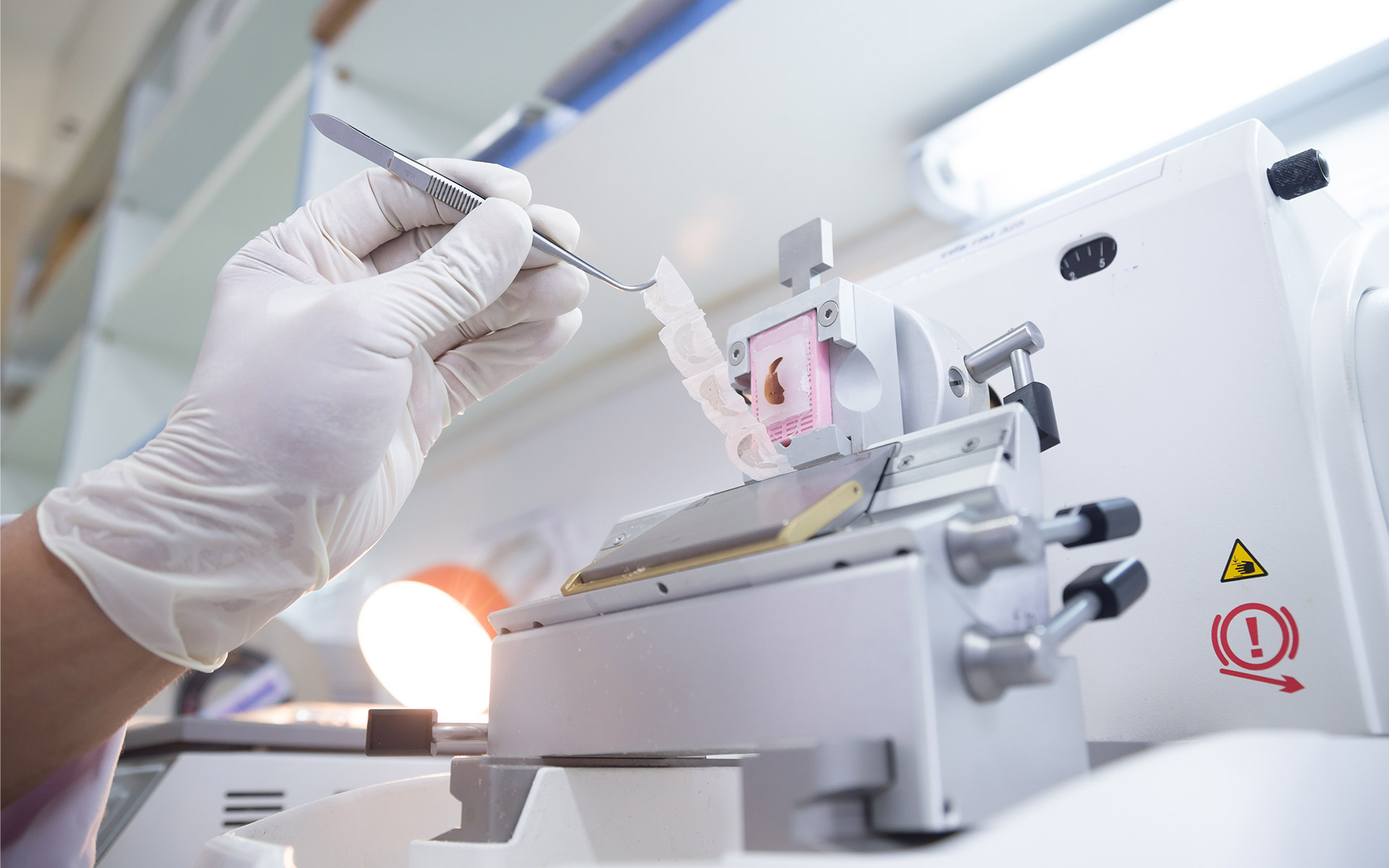

A great deal of expertise has been gained and dedicated to the study of inflammatory, preneoplastic and neoplastic diseases of the human liver, lymphoproliferative diseases and oncological, prostatic and pulmonary pathology. Surgical pathology activities are mainly of an oncological nature (neoplasia of the lungs, gastrointestinal tract, breasts and urinary tract) with an emphasis on rapid intrasurgical diagnostics. Students have the option to take additional lecture-based or research-based electives, independent studies, and a teaching practicum.The Anatomical Pathology Service is University lead and consists in the histopathology, cytopathology, immunocytochemistry and molecular pathology divisions. The required curriculum is comprised of the above courses. Students have the option to participate in cancer research, and an optional teaching practicum. Clinical rotations at various sites including surgical pathology, autopsy pathology, forensic pathology, clinical pathology, hematopathology, cytopathology, pediatric pathology, and digital pathology.Pathologists’ Assistant Seminar (1 credit).Advanced Surgical Pathology Techniques II Lab (2 credits).Advanced Surgical Pathology Techniques II (4 credits).Mechanisms of Disease II – Systemic Pathology (5 credits).Mechanisms of Disease I – General Pathology (5 credits).Surgical Pathology Practicum (1 credit).Advanced Surgical Pathology Techniques I Lab (2 credits).Advanced Surgical Pathology Techniques I (4 credits).Surgical Pathology Techniques (4 credits).The second year of the program consists entirely of clinical rotations. The first year of the program consists of didactic courses in basic sciences and surgical pathology, with surgical pathology and autopsy pathology rotations during the summer. The required curriculum includes 83 credit hours over the course of two years, which includes both didactic and clinical components. While the optional component of the curriculum is available to students, no student is required to enroll in any electives. To ensure that students are prepared to adapt to this environment, students may choose to gain additional knowledge or skills that align with individual career goals. The Pathologists’ Assistant Scope of Practice is vast and will likely continue to expand with the ever-evolving healthcare system. The optional component of the curriculum allows students to pursue personal interests that align with individual career goals. The required curriculum provides the education essential for students to become practicing Pathologists’ Assistants upon graduation. The curriculum includes a required component and an optional component. The issuing of the Master of Science degree in Anatomic Pathology from Tulane University School of Medicine is not contingent upon students passing any type of external certification or licensure examination, including but not limited to the American Society for Clinical Pathology Board of Certification Examination for Pathologists’ Assistants. Upon successful completion of the required curriculum, students will graduate with a Master of Science degree in Anatomic Pathology.
#ANATOMICAL PATHOLOGY PROFESSIONAL#
The Pathologists’ Assistant Program at Tulane University School of Medicine is a two-year, full-time professional allied health program that currently accepts 10 students per year. School of Public Health and Tropical Medicine.Molecular and Cellular Pathobiology, MS.Medical Humanities Graduate Certificate.Biochemistry and Applied Bioinformatics, MS.Graduate Degrees and Professional Programs.


 0 kommentar(er)
0 kommentar(er)
